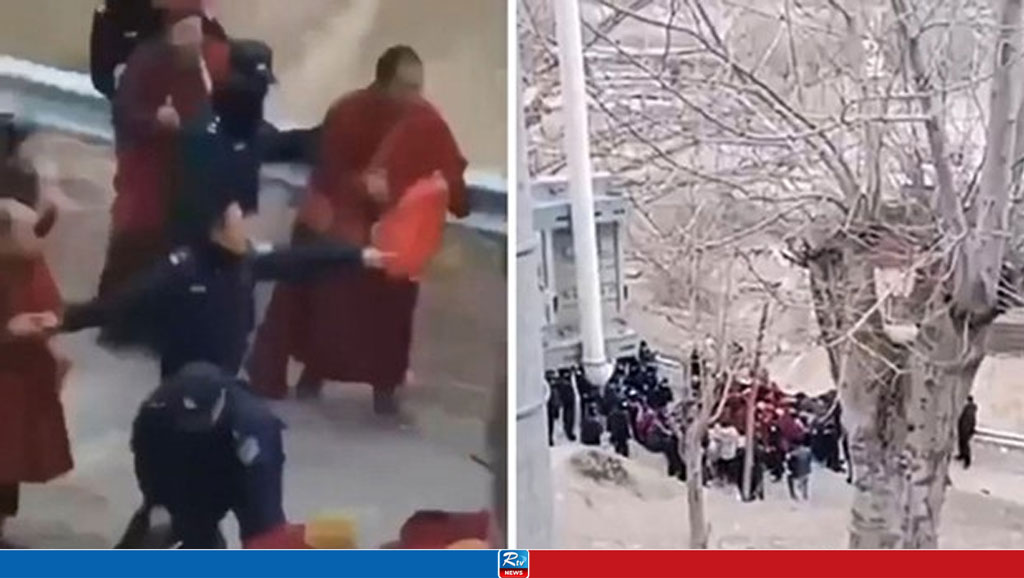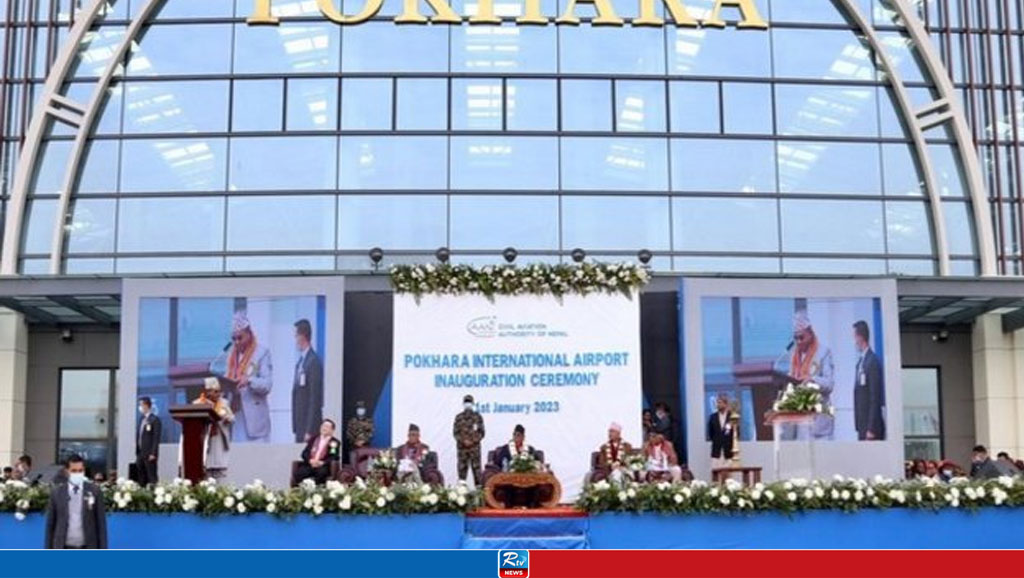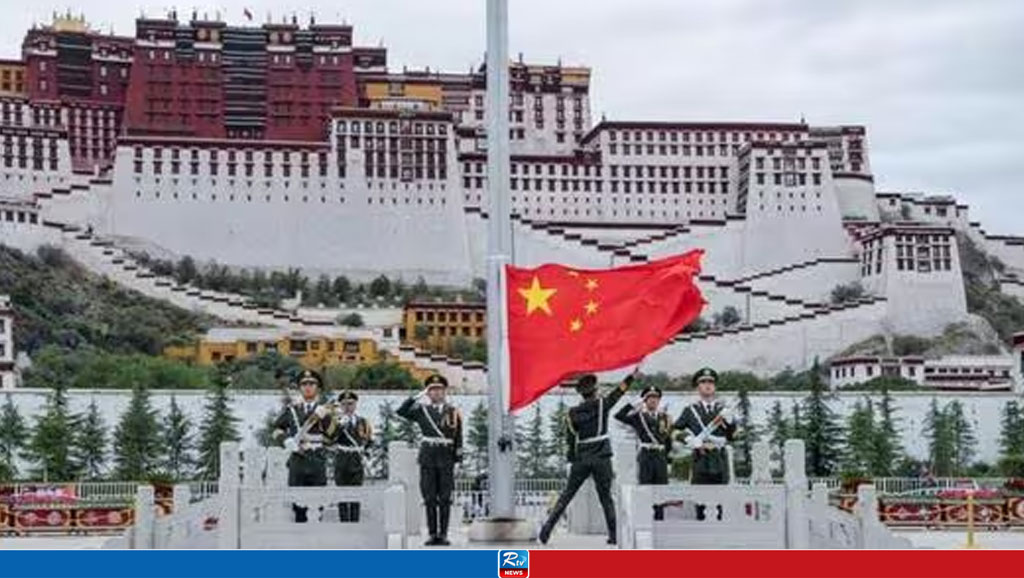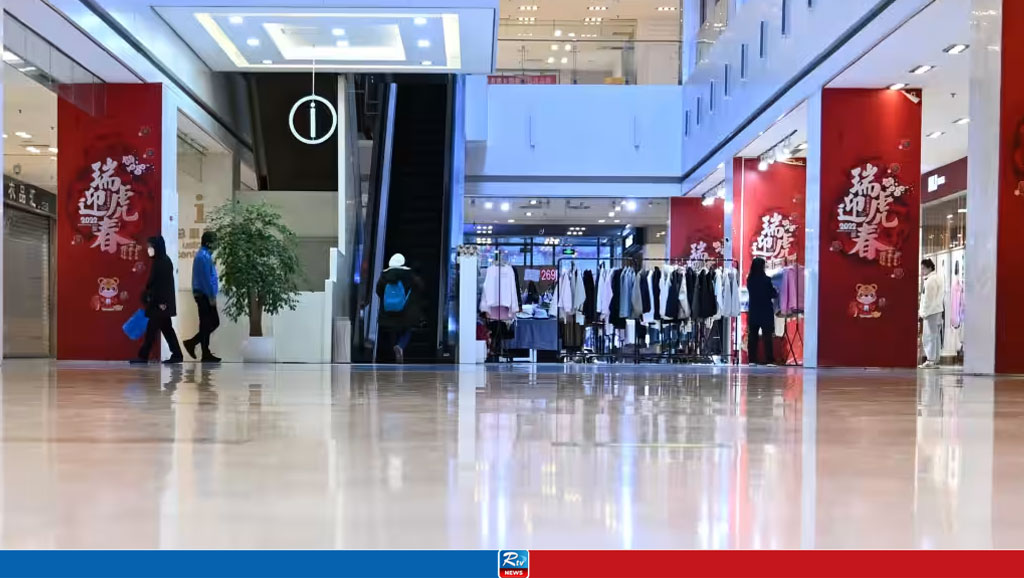Nepal asks China to convert Pokhara airport loan into grant to ease financial burden
Nepal's Prime Minister Pushpa Kamal Dahal announced on Tuesday that diplomatic efforts have been initiated with China to convert a loan for Pokhara International Airport to a grant as it failed to garner income, instead piled up more debt.
This came after opposition lawmaker Chanda Chaudhary raised questions about the increasing loss and piling debt, Nepal Prime Minister said that talks are underway to convert the loan into a grant.
"In order to operate the flights to and from the Pokhara International Airport, a committee has already been formed to study government-private sector cooperation. On the basis of the report prepared by the committee, necessary preparations would be made for the operation of the airport. The loan acquired for the construction of Pokhara International Airport, diplomatic talks are underway to convert it into a grant. Necessary coordination would be made for all the necessary financial management," PM Dahal said.
The Pokhara International Airport, opened on January 1, 2023, hasn't seen any frequent international flights except for chartered Chinese flights, which appear on rare occasions.
On March 21, 2016, Nepal and China reached a loan agreement stipulating a total loan amount of 1.37 billion Chinese yuan, out of which 355.9 million Chinese yuan were constituted as interest-free- loans. The Civil Aviation Authority of Nepal (CAAN), the aviation regulating body of the Himalayan nation, is responsible for paying the loan amount by the year 2036.
Earlier, Nepal PM Dahal, upon returning to Kathmandu last year after his visit to China, announced that Chinese flights would come to Pokhara, helping to cover the loss.
While no such flights have commenced, on Tuesday, the Prime Minister, referring to the visit, claimed, "During my recent visit to China (September 22,, 2023), a theoretical agreement was reached about commencing connecting flights from various cities of China to Pokhara, and I believe that international flights would land at Pokhara International Airport and help recover the loss."Days before the inauguration of the airport last year, the Chinese Ambassador to Nepal claimed in a tweet that the airport was a part of the Belt and Road Initiative (BRI) which was rejected by the Nepal Government.
But soon after the handover, the Pokhara airport exemplified the perils that came with importing China's infrastructure-at-any-cost development model, disproportionately benefiting Chinese firms at the expense of the borrowing nation.
China CAMC Engineering, the construction division of state-owned conglomerate Sinomach, played a pivotal role in the Pokhara airport project. It imported building materials and machinery from China, and the airport itself was brimming with Chinese-made security and industrial technology. Despite China's claims about the project's quality, an investigation by The New York Times revealed an unsettling narrative.
Multiple individuals involved in the project and a thorough examination of thousands of documents indicated that China CAMC Engineering had consistently dictated terms to maximise profits and protect its interests. Simultaneously, it systematically dismantled Nepali oversight.
As a consequence, Nepal found itself entangled in significant debt to Chinese creditors without the expected influx of passengers to repay the loans.
The Finance Ministry of the Himalayan nation had signed a memorandum of understanding supporting CAMC's proposal in 2011, even before an official bidding process had started. The Chinese loan agreement exclusively allowed Chinese firms to bid for the project.
CAMC initially submitted a bid for USD 305 million, nearly double Nepal's cost estimatefor the airport. This drew criticism from Nepali politicians, who accused the process of being rigged and the price inflated. Following the outcry, CAMC lowered its bid to USD 216 million, reducing the cost by approximately 30 per cent.
In 2016, China and Nepal formalised a 20-year agreement for the project, with a quarter of the funding provided as an interest-free loan. Nepal intended to borrow the remainder from China's Export-Import Bank at a 2 per cent interest rate.
As construction progressed, glaring issues came to light. The Civil Aviation Authority of Nepal was responsible for overseeing the Chinese contractor, but the lack of experienced personnel, combined with the inadequate allocation of funds for consultants, hampered the project.
Initially earmarked at USD 2.8 million, the budget for hiring consultants to ensure CAMC's compliance with international construction standards was eventually reduced to a mere USD 10,000, diverting funds elsewhere.
This lack of oversight allowed CAMC to initiate work before consultants were in place and perform construction work that did not meet international standards. Key components, such as soil density tests for the runway's foundation, were omitted, jeopardising the runway's future stability.
Other oversights included the airport's drainage system design, ignoring historical rainfall data and sloping topography, increasing the risk of flooding. The quality of Chinese-made building materials and the identity of vendors were inadequately documented, contravening the terms of CAMC's contract with Nepal, as reported by The New York Times.
While consulting efforts were expected to oversee CAMC's work, the Chinese company managed to sidestep consultants and interact directly with Nepali officials, who had limited construction experience. Any efforts to seek additional information or documentation were often fruitless.
China's Export-Import Bank had commissioned China IPPR International Engineering, aconsulting firm, to ensure the quality, safety, and schedule of the project and to confirm Nepal's satisfaction with CAMC's work.
However, the situation grew murkier in 2019 when CAMC acquired IPPR, turning it from a sister company into a direct subsidiary.
IPPR's fees came from Nepal as part of its loan from the Chinese bank. Chinese engineers working on the project claimed that they were instructed not to scrutinise CAMC's work closely, with a focus on delivering an airport.
Furthermore, allegations surfaced that documents related to the qualifications of IPPR'sworkers in Pokhara had been falsified. In some cases, even employee credentials were manipulated. Such practices revealed a disconcerting disregard for transparency and accountability.
As Pokhara airport struggled to attract international flights, especially from Indian airlines, Nepal's aspirations for the airport were put in jeopardy. Buddha Air, Nepal's largest airline, had requested permits for flights to India but awaited approval from the Indian government.
A feasibility study commissioned by CAMC had projected passenger numbers that would enable the airport to repay its loans from profits, but as of now, no international flights have commenced.
Nepali officials have reportedly requested that China convert the loan into a grant due to the airport's financial challenges, a matter discussed during Prime Minister Pushpa Kamal Dahal's visit to Beijing in late September.
The joint statement issued by China and Nepal during the visit acknowledged the completion and operation of the Pokhara airport but made no mention of plans to waive the loan.
The construction of Nepal's Pokhara airport, primarily funded and executed by Chinesecompanies, has raised concerns about the quality of work, the manipulation of oversight, and the burden of debt on Nepal.
Additionally, the airport's association with China's Belt and Road Initiative has ignited diplomatic tensions with India, making it challenging for the airport to attract international flights.
The Pokhara airport serves as a stark example of the pitfalls associated with importing China's infrastructure development model, highlighting concerns about financial sustainability and transparency, all while fueling geopolitical rivalries in the region.
Source: Beijing Bulletin
24 Mar 2024,23:13



















 Live Tv
Live Tv









